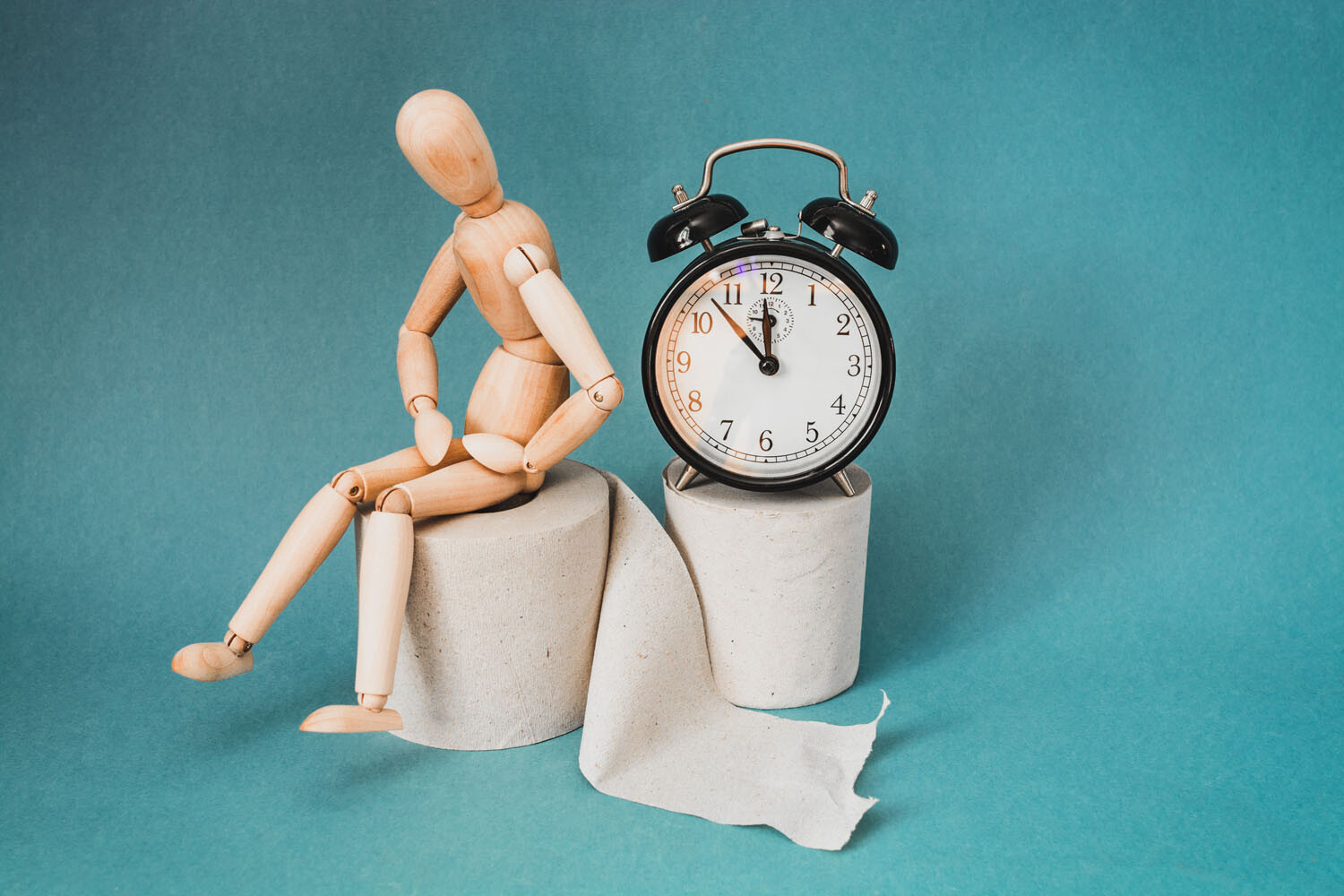NO ALARM IN THE INTESTINE
Around 100 trillion bacteria colonise the surface of the intestine, which when spread out is at least as large as a tennis court - an unimaginable number.
Around 100 trillion bacteria colonise the surface of the intestine, which when spread out is at least as large as a tennis court - an unimaginable number.

Around 100 trillion bacteria colonise the surface of the intestine, which when spread out is at least as large as a tennis court - an unimaginable number. Yet each intestinal flora, as the totality of microorganisms that colonise the intestines of humans and animals, is as individual as a personal fingerprint. It should be kept healthy accordingly.
With its surface area of 400 square metres, the intestine is one of the marvels of the human body. Its eight-metre-long loop system filters out vital components from food and the intestine shares most of the digestive work with the stomach. The stomach pumps the partially already digested food pulp into the intestine, and while bacteria are destroyed in the stomach and the small intestine contains only a few of these microorganisms, the number of digestive bacteria increases towards the end of the intestine. In the upper sections of the small intestine, up to 1000 bacteria are found per millilitre of intestinal content. In the large intestine, this concentration rises to 100 trillion. All these bacteria in the intestine, also called intestinal flora, diligently digest what we consume in the course of our lives.
Intestine suffers from bacterial overgrowth
That's quite a lot, by the way. In the course of our lives, we consume a total of about 30 tonnes of food and about 50,000 litres of liquids such as water, juices, coffee and tea. This means hard work for the digestive system, as you can imagine. Flatulence, nausea, abdominal pain, constipation or diarrhoea are not always signs that you have simply eaten something wrong or are suffering from a gastrointestinal infection. There are also other reasons why digestion changes. For example, it is not at all uncommon for the intestines to suffer from an incorrect colonisation of bacteria.
Intestinal flora is very sensitive
A healthy intestinal flora therefore makes an essential contribution to a healthy general condition. It refers to all microorganisms that colonise the human intestine. That is up to 99 percent of all bacteria that live in and on the human body. And: our intestinal flora also harbours 80 percent of the immune system. This makes the intestinal walls the body's most effective line of defence. And it is precisely for this reason that we need to take special care of our intestinal health. After all, it can stimulate the body's immune defences.
But the intestinal flora is sensitive and can be thrown out of balance even by a change in diet, stress, prebiotics or antibiotics. The resulting impaired digestion also leads to impaired absorption of essential nutritional components such as vitamins, carbohydrates, amino acids and minerals. Those who eat mainly curry sausage with rolls, carrot tops, cream pies, salami pizzas, French fries with mayo as well as lemonades or soft drinks etc. can ruin their intestinal flora within a few weeks.
The advantage: We can positively influence the intestinal flora and thus keep ourselves healthy!
Important for an intact intestinal flora are, among others, lactobacilli and bifidobacteria. That is why they probably have the largest share in the intestinal flora. Psyllium husk powder and the mineral clay bentonite also help to maintain the health of the intestinal flora. To build up the intestinal flora, a diet that is rich in vital substances, minerals and fibre, but largely avoids sugar and also contains only moderate amounts of animal proteins, is particularly suitable. Then lactobacilli and bifidobacteria feel right at home and like to multiply.
The Natura Vitalis product "Lacto-Flora 8" contains exactly these types of bacteria. Each individual capsule contains six billion pure, living bacteria from eight different bacterial strains! These immensely important bacterial cultures are packed in a gastric juice-stable cellulose capsule so that they are not destroyed by the aggressive stomach acid and can thus safely reach the intestine.
Cleanse the intestines up to twice a year
By the way: If you suffer from frequent digestive problems, you should also have an intestinal cleansing once a year. This usually consists of an intestinal cleanse - either very gently with natural remedies or as an enema - and the rebuilding of the intestinal flora. Only when the intestines have been cleansed of waste products and faeces will the intestinal mucosa be receptive again to the beneficial bacteria that are introduced after the cleansing. Intestinal cleansing can best be supported with a healthy, high-fibre and low-acid diet. Sugar and white flour products should be eliminated from the diet during this time, as well as mucus-forming dairy products and alcohol. Depending on the state of health, a beneficial colon cleanse can be carried out up to twice a year.